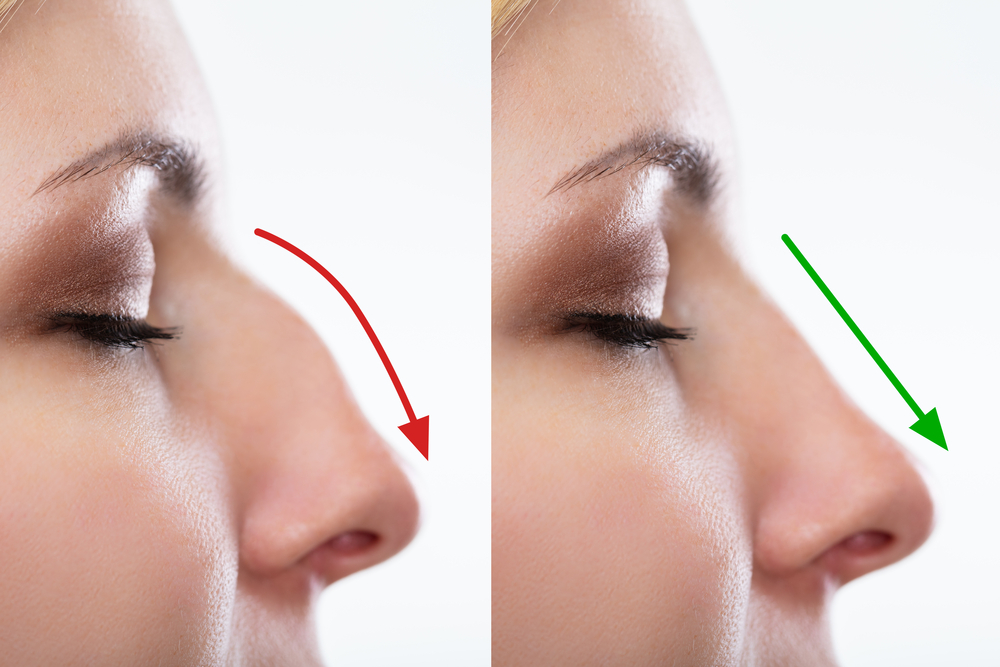If you’ve considered getting rhinoplasty, that is, surgery to change the appearance of your nose, then you’ve probably wondered how long it takes to see your final results. At the New England Cosmetic Surgery & Laser Center in Weymouth, MA, we’re committed to ensuring our patients have all the information they need before embarking on surgery.
How Long Is Recovery After Rhinoplasty?
The recovery period following nose surgery varies from person to person. On average, patients can expect the initial stages of recovery to last about one to two weeks, depending on how quickly their body heals. However, it’s important to note that the full recovery timeline extends beyond this period. While most individuals can resume their normal activities after a couple of weeks, it may take several months to heal completely and see the final results.
Time Off Work
The time patients need to take off work after nose surgery depends on several factors, including the nature of their job and the extent of the surgery. In general, people typically take about one to two weeks off work to allow for initial recovery. However, jobs with more physical demands may require a more extended break. Patients should discuss their specific work situation with us during their intial consultation so that we can give an accurate personalized recommendation.
The Recovery Timetable
The recovery timetable for nose surgery unfolds in distinct stages. In the initial days, patients may experience swelling of and around the nose. While visible improvements are noticeable within a few weeks, the complete resolution of swelling and the emergence of the final results may take several months. Patience is crucial throughout the recovery period.
Optimizing Recovery After Rhinoplasty
The recovery process after nose surgery involves following post-operative care instructions diligently. This includes getting enough rest, avoiding strenuous activities, and taking prescribed medications as directed. Keeping the head elevated, applying cold compresses to manage swelling, and attending all scheduled follow-up appointments contribute to a smoother recovery process. A balanced diet and staying hydrated also play a role in supporting the body as it heals.
How Does The Surgery Work?
This surgery is done by reshaping the bone, cartilage, and tissue structure of the nose to achieve specific aesthetic or functional goals. The surgeon makes precise incisions, discreetly placed, to access and modify the underlying nasal framework. This process allows for alterations in the size, shape, and symmetry of the nose, addressing concerns such as a dorsal hump, nasal tip refinement, or overall facial harmony.
What Can It Treat?
Nose surgery is a versatile procedure capable of addressing various cosmetic and functional concerns. From refining the nasal tip and bridge to correcting asymmetry and enhancing overall facial balance, the surgery caters to a spectrum of aesthetic goals. It is not limited to cosmetic improvements; nose surgery can also rectify functional issues, including breathing difficulties resulting from a deviated septum or other structural abnormalities.
How Should Patients Prepare for Surgery?
Effective preparation for nose surgery involves clear communication between patient and surgeon. During pre-surgery consultations, articulate your goals and expectations, providing us with a comprehensive understanding of your desired outcomes. Complete disclosure of medical history, including allergies, medications, and previous surgeries, is also vital.
We will also give you specific pre-operative instructions, such as dietary restrictions and discontinuation of certain medications, to ensure a smooth and safe surgical experience.
Suitable Candidates for Nose Surgery
A suitable candidate for nose surgery is someone with realistic expectations and a clear understanding of the changes they seek. Good overall health is essential, and candidates should be non-smokers or willing to quit smoking before and after surgery. The surgery caters to both cosmetic concerns, such as dissatisfaction with the nose’s appearance, and functional issues, like difficulty breathing due to nasal structural problems.
Disqualifying Conditions
Certain health conditions may disqualify individuals from undergoing nose surgery. Factors that impact healing may pose risks to the patient and affect the outcome of the surgery. Additionally, as rhinoplasty typically takes place under a general anesthetic, you may not be able to have this surgery if you are not healthy enough to undergo this form of anesthesia.
Unrealistic expectations, a history of psychological disorders, or an inability to commit to the necessary recovery process may also make someone unsuitable for the procedure. Potential candidates must undergo a thorough evaluation with us to assess their eligibility and discuss any potential risks or limitations associated with their specific health status.
Alternative Options for Unsuitable Candidates
If a patient is unsuitable for surgical rhinoplasty, this doesn’t mean that nothing can be done to improve the appearance of their nose. Non-surgical procedures, such as dermal fillers or BOTOX, are available to the vast majority of patients and can address many cosmetic concerns without the need for surgery.
Move Forward With Confidence
The recovery period after rhinoplasty is a multifaceted process that unfolds over several weeks and months as the results of surgery emerge gradually. Being patient can be hard, but we know our many satisfied patients think that their final results were well worth the wait. To find out more, get in touch with us at the New England Cosmetic Surgery & Laser Center in Weymouth, MA.
